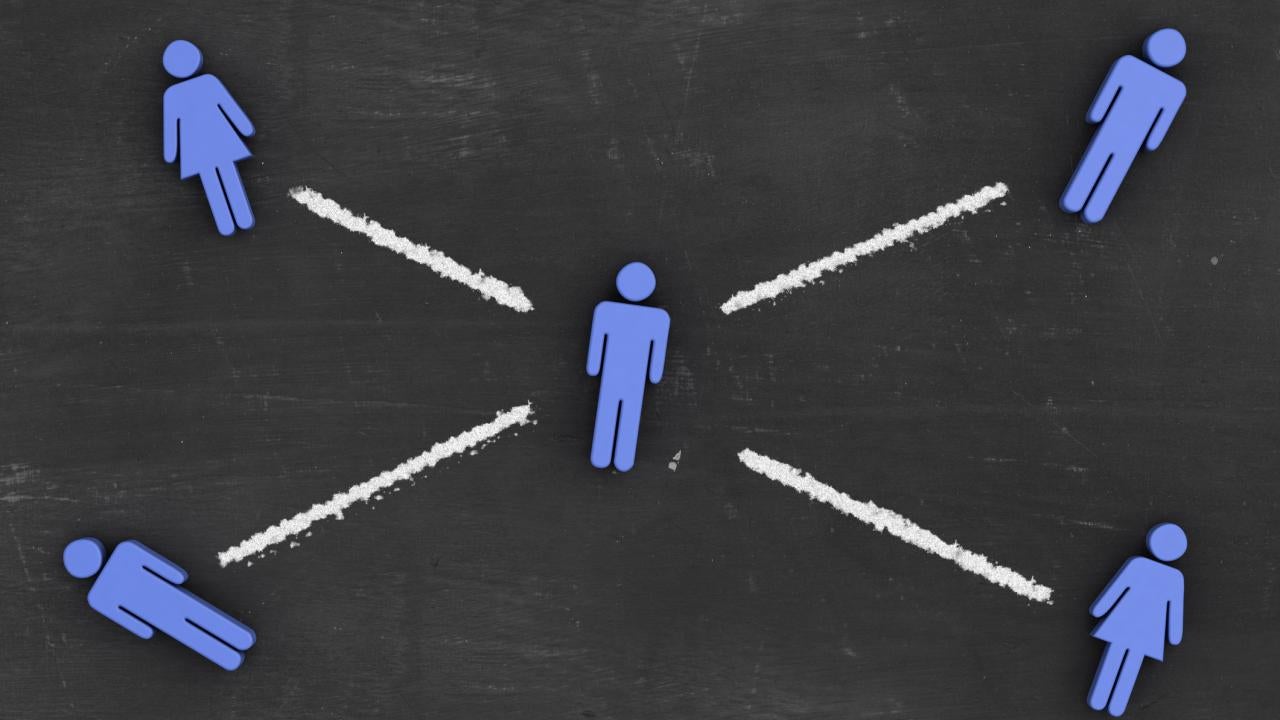Quick Summary
- Tips for other kinds of socializing
- Help with insomnia
- Be grateful, help others
UC Davis psychiatrists and psychologists have been appearing in traditional and social media giving advice on how to stay mentally healthy during the pandemic. For many, social distancing — the current government shelter-in-place order that people confine themselves to their homes with only a few exceptions — is a tough way to go through life.
Alison Ledgerwood, professor of psychology, shared some of her tips on her Twitter feed recently. She received 60,000 impressions and 1,200 engagements already, which provides a clue how needed this advice is. Professor of Psychology Cynthia Pickett, director of the UC Davis Self and Social Identity Lab, shared in a local television interview last week that social distancing is difficult for a very basic reason: people are meant to be social.
What to do?
From Ledgerwood:

- Working from home? Take advantage of the opportunity to set up a Skype happy hour with a far-flung friend.
- Pay your people. Hair dresser, house cleaner, anyone you usually depend on but find yourself canceling while you do your part to keep everyone safe. If you can, prepay your next five appointments, or send a holiday bonus early.
- Go outside. Look at a tree. Put your face in the sun. Witness a flower.
- Limit your media and social media intake. Set times for it. Then make yourself put it down. Plug your phone in across the room. Or even … and this may seem extreme but stay with me now … in an ENTIRELY DIFFERENT ROOM.
- Exercise. Walk. Run. Bike. Pushups. Yoga. Bonus points if you get outside.
- Share nourishing experiences even from afar. Plan a video call dinner party with friends. Everyone cooks and drinks the same thing. Clink glasses into the camera.
- Write down three things you’re thankful for. They can be little things, big things, in between things. Crocuses. Dog ears. Cat purrs. A person. The rhythm of a sentence. The pattern of a shadow.
- Help someone. Reach out to your neighbors and see if anyone needs help getting groceries, or look for local programs working to distribute food to children and seniors. Hop on Patreon and support a local musician. Did you panic and buy masks? Donate them to a hospital. Think about the specific skills you have and how you could use them to help others.
- Breathe. No, but seriously. In for five seconds. Out for five seconds. Once again. I’ll do it too. Nice, huh? Set aside five minutes. Yes, an entire five minutes. Breathe.
- Let go of something. A task, an obligation, an impossible standard for yourself. There are more important things in life. Go do one.
In this Facebook Live video, above, Peter Yellowlees, M.D., M.B.B.S., chief wellness officer at UC Davis Health, offers tips on how to reduce anxiety and fear. Watch it. He offers many of the same tips as Ledgerwood. But he adds another: He said everyone has many acquaintances, but focus on your friends — your inner circle. So call up friends and relatives you don’t talk to every day, and talk to them, and help each other through a difficult time, he advises.
And here’s a bonus piece of help. He said a lot of people suffer from insomnia at times like this. There’s an app for that. The U.S. Department of Veterans Affairs has a mobile app originally targeted at veterans with post-traumatic stress disorder, but it can help anyone who is trying to improve their sleep habits in a stressful time. Go here for that.
Media Resources
Karen Nikos-Rose, News and Media Relations, 530-219-5472, kmnikos@ucdavis.edu
